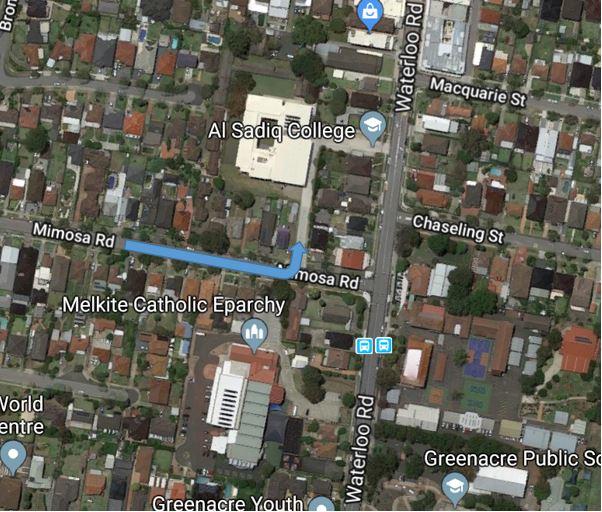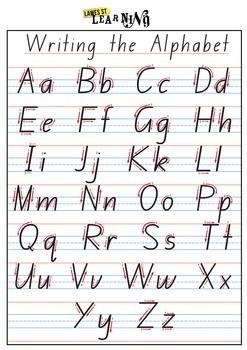Ramadan Mubarak parents and caregivers of the College!
THE HOLY MONTH OF RAMADAN
Reflecting on the meaning of Ramadan
It has been really pleasing to see the response of students as we have talked with them about the true meaning of Ramadan as a time of spiritual renewal, reflection, giving and thankfulness. Whilst the emphasis on abstaining from food and drink tends to be something that they (and we) concentrate on, we have used our assemblies, daily prayers and daily well-being lessons to go through a structured program developed by our staff. The Ramadan program focusses and reflects on passages from the Holy Quran which point the students towards living a life which reflects the eternal truths of their faith. As someone has said “During Ramadan we close our mouths so we can open our hearts.”
Thank You Mr. Wannous
I am very thankful for Mr. Ibrahim Wannous, a true “hero of the community”, for his work every day throughout the Holy month of Ramadan in leading our students to reflect upon their religion and the Holy Quran. Mr. Wannous had faithfully served the Muslim Alawite community for more than 35 years as an Arabic and Religion tutor at the College and as the driving force in running the Saturday Arabic School for the community to help our students understand and connect with their Arabic language and cultural heritage. Mr. Wannous’s commitment and service is an inspiration to us all.
Traffic Arrangements During Ramadan
Families have relayed to me that they genuinely appreciate the College finishing 30 minutes earlier at the Greenacre Campus. However, one huge issue we have had to overcome is the additional traffic that has come with us finishing at the same time as several other local schools. Each afternoon we see huge volumes of traffic in and around the College and I would like to thank our parents for the patience you have displayed in waiting for the traffic to subside. It has made the job of our staff so much easier and we are truly grateful for your patience and help.
Unfortunately, traffic on Mimosa Road each afternoon has been in “gridlock”. In order to enable local residents to use Mimosa Road and to enable the parents of Greenacre Public School and Holy Saviour Catholic School to pick up their own children, I ask that for the Holy Month of Ramadan that all parents approach the College of an afternoon from the west along Mimosa Road, and not by turning in from Waterloo Road.
Thank you for your help – it is greatly appreciated!
CHILDREN HELPING AROUND THE HOME
As our children watch us and help around the home they become more confident, and confidence teaches them they can be successful if they stick at a task. The easiest (and sometimes most neglected way) to help children develop competency is to give them opportunities to help out around the home. We don’t want to overburden them with jobs, but we can sensibly allocate chores according to their age, interests and study requirements.
We should expect our children to help around the home without being paid – this is an important part of what it means to be a contributing family member. By all means, provide pocket money, but avoid linking pocket money to chores. Helping in exchange for money develops in children a notion of “What’s in it for me?”, which is a very self-centred view of life. During the Holy month of Ramadan, this is an especially important principle for our young people to learn.
However, over the years many parents have told me that they can’t get their children to help unless they pay them. Sadly, these parents may have made a rod for their own backs. It’s time for a change of tune. Don’t wait until they are old enough to help. Start now, regardless of age. Toddlers and teens and all ages in between should be expected to chip in and help as family members.
The term ‘chore’ definitely has an image problem. Use the term ‘help’ as it is easier on the ear and really does indicate what you want from your children. Here are some ideas to help you get your children to understand and appreciate the importance of doing chores;
1. Keep jobs real
Our children can really sense it when their parents give them jobs to keep them busy. Make sure the jobs you give them can make a real contribution to the family’s functioning and well-being.
2. Balance the personal chores with family jobs
Chores are generally divided into two areas. Jobs such as keeping a bedroom tidy benefits a child and jobs such as setting the table benefit the family. By doing this kids learn to contribute positively to family-life.
3. Place more difficult tasks on a roster
The children can refer to it when needed, which takes the load off you and removes the need to remind them. Rotate the unpleasant tasks frequently. And here’s the key to making rosters work – place yourself on the roster too! Kids are generally more willing to help when they know that you as a parent are involved.
4. Avoid doing jobs for children
When children get the message that no one will do their jobs for them they will be more likely to help out. They will learn very quickly that if they fail to complete a task you will finish it for them.
5. Show your appreciation for their help
Make a fuss when they help so they know that their contribution to the family is valued. If you do it often enough they may even show their appreciation for all you do for them!
6. Keep your standards high
Don’t accept half-hearted efforts or half-completed jobs. If you think your child is capable of putting the cat food back in the fridge and placing the spoon in the dishwasher then insist that he or she does just that, rather than leaving the cat food on the sink. A job properly done is valued in the world of work, which they will eventually enter. Always remember that the habits they build in the safety of family life will stay with them for life.
7. Rebrand the term ‘chore’ as ‘help’
The term ‘chore’ definitely has an image problem. Use the term ‘help’ as it is easier on the ear and it really does indicate what you want from your children.
Remember that our children, from an early age, are far more capable than we give them credit for. Helping with chores around the home not only makes a valuable contribution to the family, but can put in place habits which stay with your children for the rest of their lives.
Mr. Geoffrey Fouracre
Principal





















